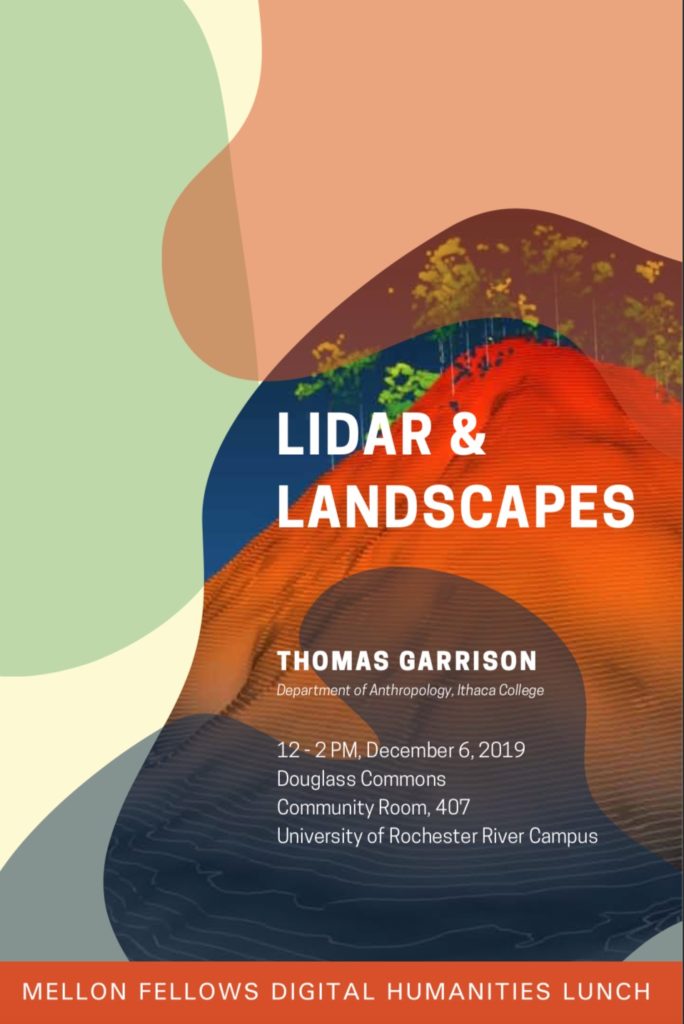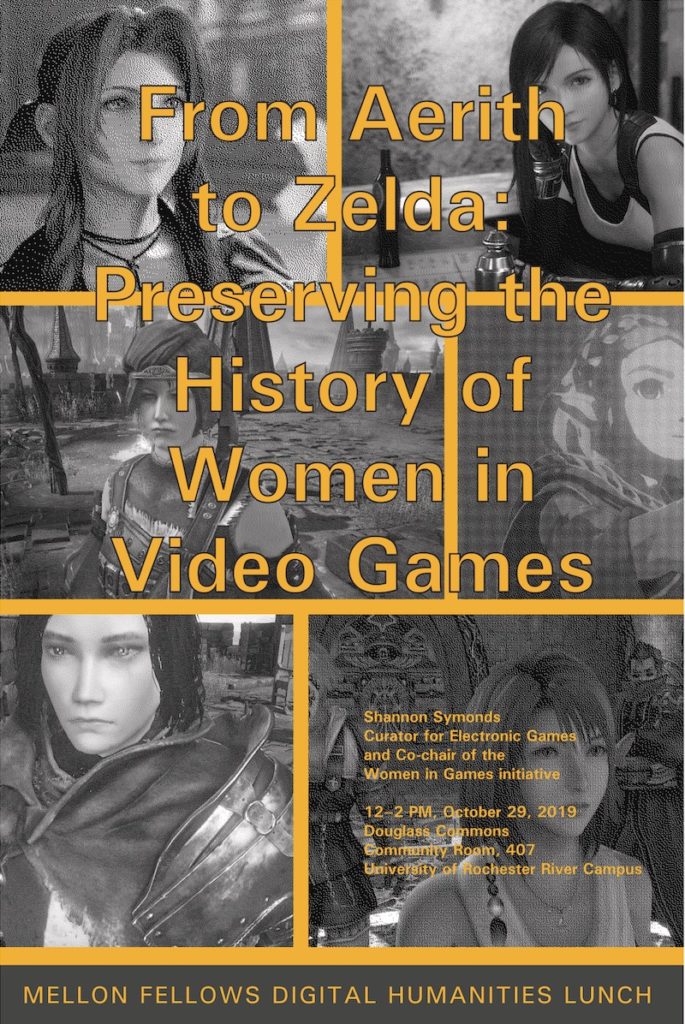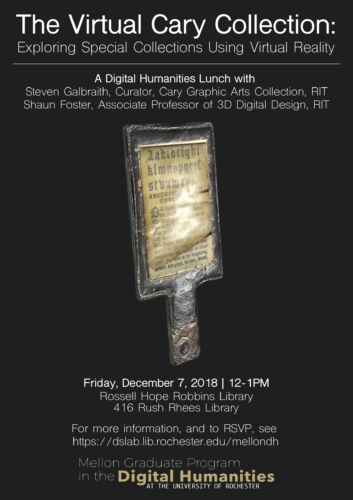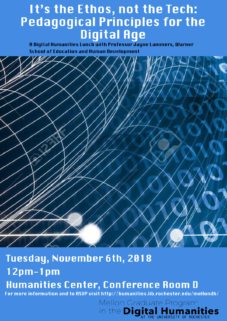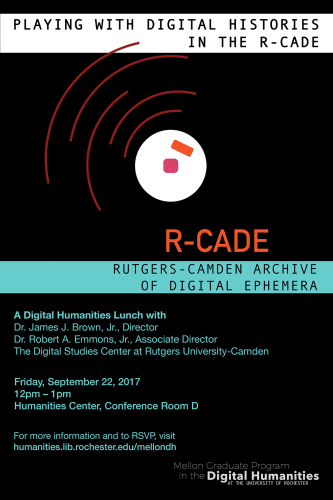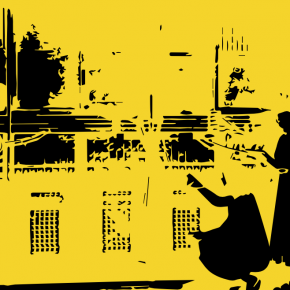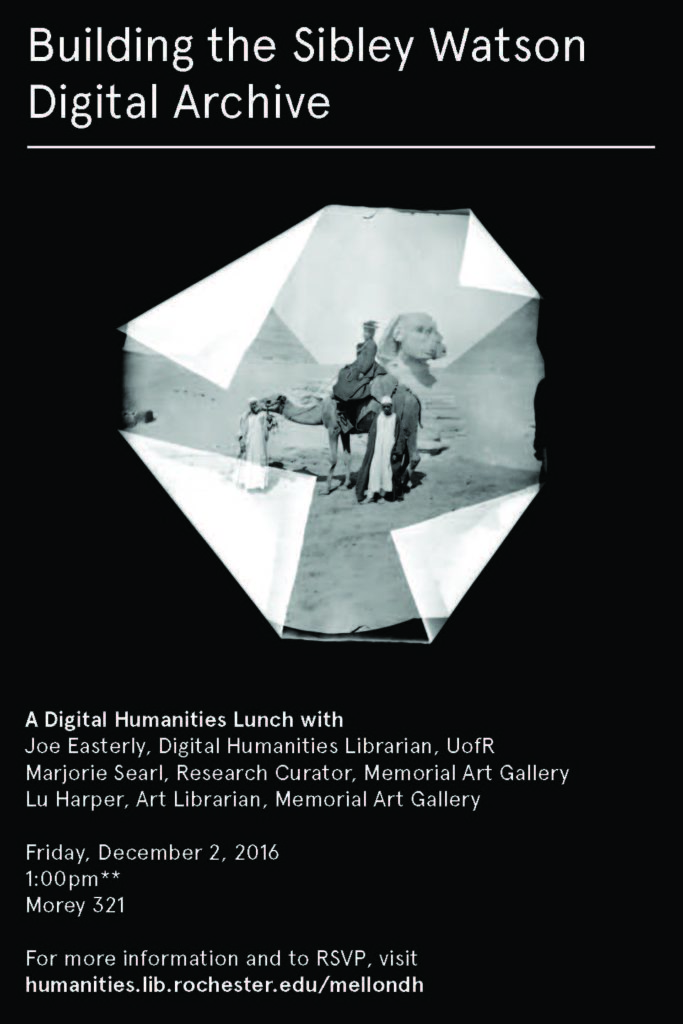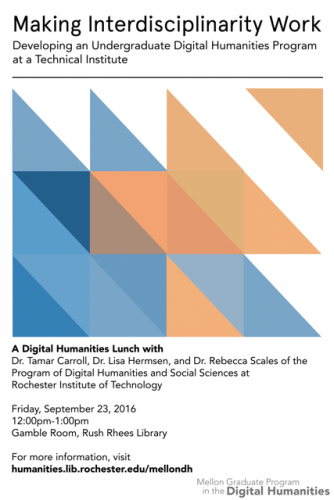Joe Easterly, Digital Humanities Librarian, University of Rochester
Margie Searl, Research Curator, Memorial Art Gallery
Lu Harper, Art Librarian, Memorial Art Gallery
Friday, December 2nd, 2016, 1 pm
Morey Hall Room 321
Please join us for an in-depth discussion of a new digital project due to be launched by early December: the Sibley Watson Digital Archive, a collaborative project begun in 2014 between the University of Rochester, the Memorial Art Gallery, and the George Eastman Museum.
This archive is a scalable, extensible, standards-based framework for publishing family papers and related photographic material that exposes and unites hidden collections from multiple institutions, in a curated online environment allowing for multiple access points, and documenting the history of multiple generations of Rochester’s Sibley and Watson families. These families’ contributions to American culture and science are manifold: best known are Hiram Sibley and Don Alonzo Watson, who were instrumental in founding Western Union in the 1850s. Sibley’s daughter Emily Sibley and Watson’s son James Sibley Watson became husband and wife, and were responsible for the founding and later expansion of Rochester’s Memorial Art Gallery. Their son James Sibley Watson, Jr. was a radiologist, an important amateur filmmaker, and the publisher of one of the 20th century’s major literary journals, The Dial.
During their talk, Joe Easterly, Margie Searl and Lu Harper will be discussing the challenges and rewards of collaborating on digital projects where the materials are spread across multiple institutions, as well as content specific to the archive, such as travel at the turn of the 20th century, and the role the Sibley Watson family played in the development of University of Rochester and its community.
